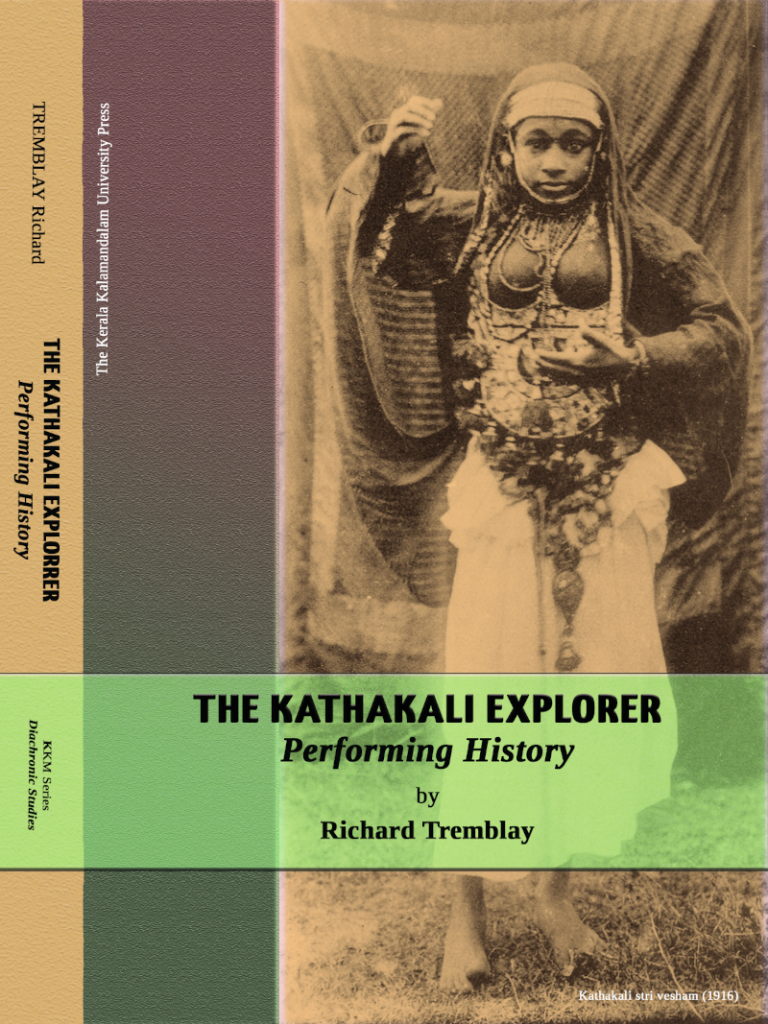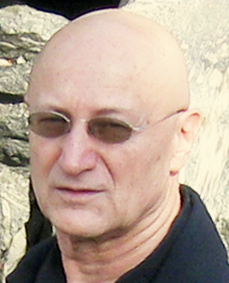
The Kathakali Explorer is about the work and life of A. M. and L. Merwarth, two ethnologists who traveled extensively in the colonial India and documented various aspects of the Indian arts, languages and the South-Indian literature, and the people’s way of life. They authored the first monograph ever written on the Kathakali dance theater of Kerala following a whole-night performance they attended in Kottayam (Kerala) on January 14, 1916. This document is translated in the book with an introduction and annotations, followed by a travelogue kept by the two researchers about their life and work in India, the people they befriended on their tireless journey all the way from South India to Kashmir.
About the publication of the monograph by A. Merwart in 1926
It (the monograph) reveals the outstanding fact that ethno-choreography came into being even before 1933, the publication date of Curt Sachs’ ‘Weltgeschlchte des Tanzes.’ The author (Merwart) describes the Kathakali dance drama in detail… He relates the drama to the culture in an authoritative manner.
KURATH Gertrude P. (1963). Ethnomusicology 7(2): 141 – 142.
The monograph assuredly stands out as a landmark in the entire range of substantive literature on Kathakali.
KHOKAR M. (1997). Sruti (148, Jan.1997): 19 – 22.
The author of The Kathakali Explorer
The author, choreographer and researcher Richard Tremblay has been performing and researching in the Kathakali dance theater since the early 1980s.

From his experience with theatre and training as an apprentice actor, choreographer and researcher RICHARD TREMBLAY set off on his creative journey in the early 1970s, on the background of the European theatre revival and what is known as the New American Theatre. He worked in choreographic theatre at the Groupe Téâtram he founded in (1971) and where he directed his choreographic theatre until 1981. His early stage work was presented at the National School of Drama in New Delhi and at the former New Theater Festival (Baltimore, USA). He went on with his training in Kathakali dance theatre at the Kerala Kalamandalam school of dance and theatre company (1975 – 81) where he was then commissioned to create the Iliad (The Anger of Achilles) in 1988, a three-hour production premiered at the NCPA (National Center for the Performing Arts) in Mumbai (India, 1991), by the Kalamandalam dancers, singers, percussionists, and the production team. The Anger of Achilles was revived in Singapore (2000) in a remake under the auspices of Danse Kalashas. The choreographer is the founder director of the Danse Kalashas dance company where he authored most of his choreographic works since 1990, including the company’s one hour programme and founding work Of Mice and Other Similar Devices (1990). His Prayer for a Rope, a Pope and a Rogue (2003) is a full programme of dance for six dancers, with collaborations in scenographic creation and lighting by Jean-Guy Lecat, a former production associate of Peter Brook, and by Bruno Paquet in a composition for percussion instruments with five percussionists under the direction of Shawn Mativetsky. Richard Tremblay received a late training in phonology (linguistics, Un. de Montréal, 1981 – 84) and holds a PhD in Performing Arts (Kathakali Studies, Kalamandalam, Kerala State University). He is the author of The Kathakali Explorer (2020) and of articles and papers in Kathakali, dance and theatre, including a critical gaze at the new Kathakali repertoire in an article published in the Indian Theatre Journal (Intellect, 2023, Vol. 7, 1). Richard Tremblay is currently working on the reconstruction project of an early Kathakali performance, along with various pieces of writing. _______